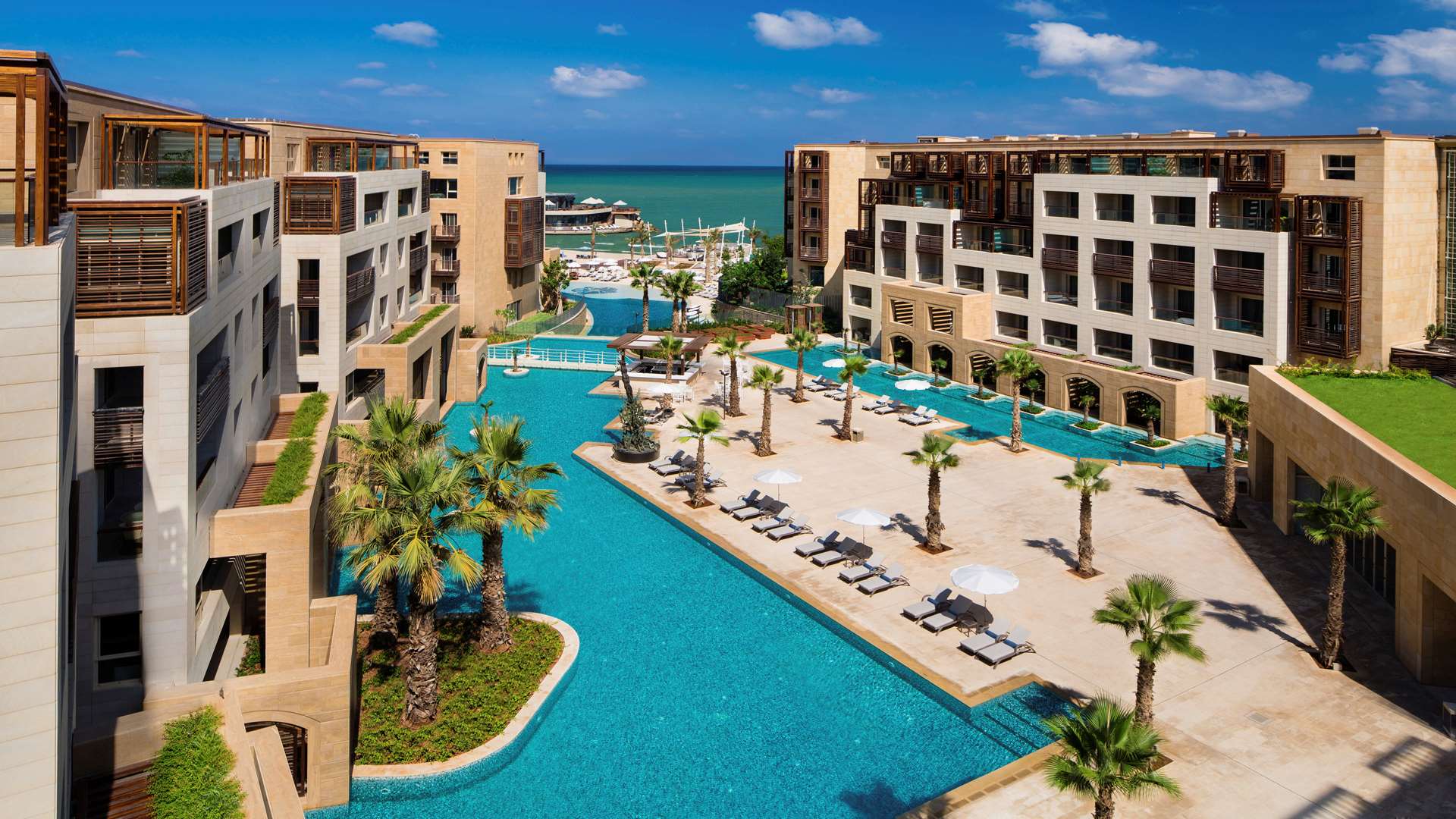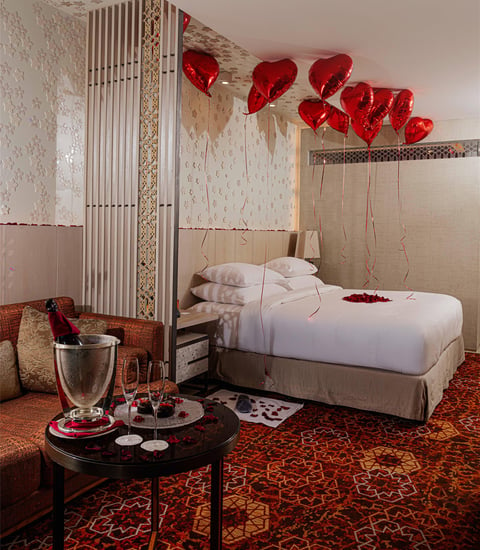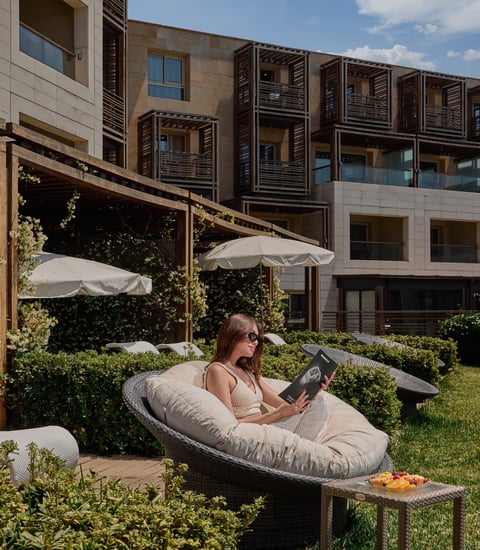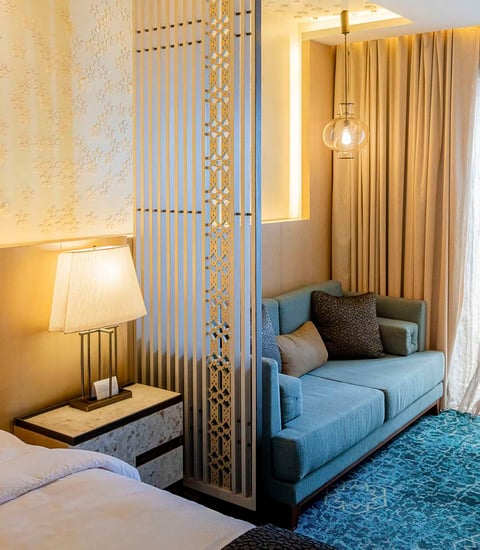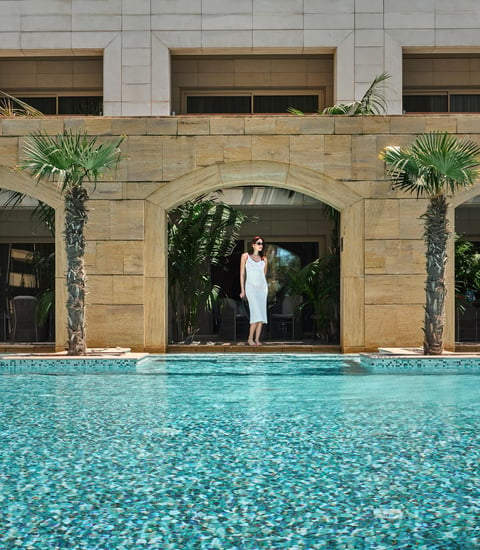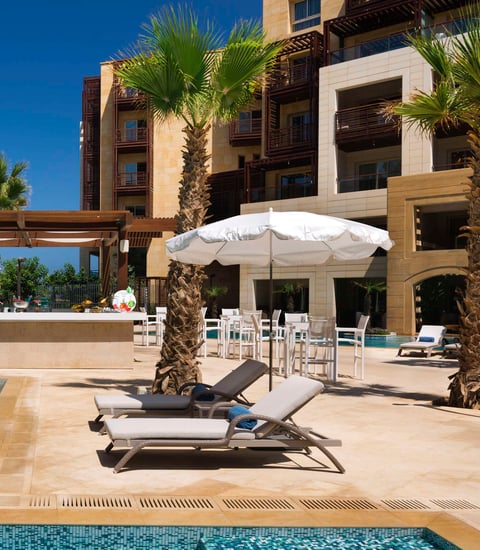-
Necessary cookies help make a website usable by enabling basic functions like page navigation and access to secure areas of the website. The website cannot function properly without these cookies.
- Amazon
8Learn more about this providerauth [x8]Registers whether the user is logged in. This allows the website owner to make parts of the website inaccessible, based on the user's log-in status.
- Cloudflare
1Learn more about this providercf.turnstile.uThis cookie is used to distinguish between humans and bots.
- Cookiebot
4Learn more about this providerCookieConsent [x4]Stores the user's cookie consent state for the current domain
- Cover Manager
1Learn more about this providerdebugThis cookie is used to detect errors on the website - this information is sent to the website's support staff in order to optimize the visitor's experience on the website.
- Eyeota
1Learn more about this providerSERVERIDThis cookie is used to assign the visitor to a specific server - this function is necessary for the functionality of the website.
- Google
3Learn more about this provider
Some of the data collected by this provider is for the purposes of personalization and measuring advertising effectiveness.
test_cookieUsed to check if the user's browser supports cookies.rc::aThis cookie is used to distinguish between humans and bots. This is beneficial for the website, in order to make valid reports on the use of their website.rc::cThis cookie is used to distinguish between humans and bots. - ID5
1Learn more about this providergdprDetermines whether the visitor has accepted the cookie consent box. This ensures that the cookie consent box will not be presented again upon re-entry.
- Kempinski Hotels
6Learn more about this providercarts-#Voucher Shop - enables storing the selected vouchers in the shopping cart.changedPersonalization-#Voucher Shop - enables adding the personalised message to a voucher.copyPersonalizeVoucher-#Voucher Shop - enables copying the personalised message to other vouchers in the shopping cart.hasSeenFullScreenVideoThis cookie is used to determine if a user has been shown the Kempinski video pop up. Prior to displaying the Cookiebot acceptance banner.payment-#Voucher Shop - initialized payment session details.softTokenThis variable is used to store authorization token of logged out user which Kempinski will use after navigating back to any pages under Kempinski.com
- LinkedIn
1Learn more about this providerli_gcStores the user's cookie consent state for the current domain
- OnAudience
1Learn more about this providercookiePreserves the visitor's session state across page requests.
- OpenTable
11Learn more about this providerak_bmsc [x2]This cookie is used to distinguish between humans and bots. This is beneficial for the website, in order to make valid reports on the use of their website.bm_mi [x2]Used in context with the website's BotManager. The BotManager detects, categorizes and compiles reports on potential bots trying to access the website._abckUsed to detect and defend against replay-cookie-attacks – The cookie is necessary for the security and integrity of the website.bm_svUsed in context with the website's BotManager. The BotManager detects, categorizes and compiles reports on potential bots trying to access the website.bm_szUsed in context with the website's BotManager. The BotManager detects, categorizes and compiles reports on potential bots trying to access the website.OT-SessionIdNecessary for the website's booking functionality.OT-Session-Update-DateNecessary for the website's booking functionality.otuvidNecessary for the website's booking functionality.ha_userSessionRemembers the user's seat and reservation number upon making online reservations.
- Sojern
1Learn more about this providercidThis cookie is necessary for making credit card transactions on the website. The service is provided by Stripe.com which allows online transactions without storing any credit card information.
- Stripe
9Learn more about this provider__stripe_mid [x4]This cookie is necessary for making credit card transactions on the website. The service is provided by Stripe.com which allows online transactions without storing any credit card information.__stripe_sid [x4]This cookie is necessary for making credit card transactions on the website. The service is provided by Stripe.com which allows online transactions without storing any credit card information.mDetermines the device used to access the website. This allows the website to be formatted accordingly.
- Yandex
2Learn more about this providersync_cookie_csrf [x2]Used in connection with the synchronisation between the website and third-party Data Management Platform. The cookie serves to monitor this process for security reasons.
-
adlonberlin.traumgutscheine.com
kempinskiadriatic.traumgutscheine.com
kempinskiberchtesgaden.traumgutscheine.com
kempinskidastirol.traumgutscheine.com
kempinskidresden.traumgutscheine.com
kempinskiengelberg.traumgutscheine.com
kempinskihightatras.traumgutscheine.com
kempinski-istanbul.traumgutscheine.com
kempinskimalta.traumgutscheine.com
kempinskimunich.traumgutscheine.com
kempinskiportoroz.traumgutscheine.com
kempinski-riga.traumgutscheine.com
12x# [x12]Necessary for the shopping cart functionality on the website. -
ads.smartstream.tv
adsafety.net
2DID [x2]Unique id that identifies the user's session. - b2c.eat2eatmsp.eu
3_abThis cookie is necessary for making credit card transactions on the website. The service is provided by Stripe.com which allows online transactions without storing any credit card information._mfThis cookie is necessary for making credit card transactions on the website. The service is provided by Stripe.com which allows online transactions without storing any credit card information.idPending
-
book-widget.pure-informatique.com
www.covermanager.com
2PHPSESSID [x2]Preserves user session state across page requests. - cdn.cookielaw.org
1OptanonConsentDetermines whether the visitor has accepted the cookie consent box. This ensures that the cookie consent box will not be presented again upon re-entry.
-
challenges.cloudflare.com
mindbodyonline.com
2_cfuvid [x2]This cookie is a part of the services provided by Cloudflare - Including load-balancing, deliverance of website content and serving DNS connection for website operators. -
kempinski.com
www.secure-booker.com
2__cf_bm [x2]This cookie is used to distinguish between humans and bots. This is beneficial for the website, in order to make valid reports on the use of their website. - shop.e-guma.ch
1raygun4js-useridThis cookie is used to detect errors on the website - this information is sent to the website's support staff in order to optimize the visitor's experience on the website.
- thefork.com
1datadomeUsed in context with the website's BotManager. The BotManager detects, categorizes and compiles reports on potential bots trying to access the website.
- www.secure-booker.com
3ASP.NET_SessionIdPreserves the visitor's session state across page requests.AWSALBRegisters which server-cluster is serving the visitor. This is used in context with load balancing, in order to optimize user experience.AWSALBCORSRegisters which server-cluster is serving the visitor. This is used in context with load balancing, in order to optimize user experience.
-
yandex.com
yandex.ru
2i [x2]Preserves users states across page requests.
- Amazon
-
Preference cookies and other tracking tools enable a website to remember information that changes the way the website behaves or looks. They are used to remember your choices and settings, like your language and region, to provide a more personalized experience. This includes saving your last search to help you continue your booking and optimizing your experience through A/B testing
- Amazon
8Learn more about this provideri18n_redirected [x8]Determines the preferred language of the visitor. Allows the website to set the preferred language upon the visitor's re-entry.
- Cookiebot
1Learn more about this providerCookieConsentBulkSetting-#Enables cookie consent across multiple websites
- LinkedIn
1Learn more about this providerlidcRegisters which server-cluster is serving the visitor. This is used in context with load balancing, in order to optimize user experience.
- Lotame
1Learn more about this providerqmapNecessary for the website’s 3D-map function.
-
b2c.eat2eatmsp.com
b2c.eat2eatmsp.com.cn
b2c.eat2eatmsp.eu
3NEXT_LOCALE [x3]This cookie is used to determine the preferred language of the visitor and sets the language accordingly on the website, if possible.
- Amazon
-
Statistic cookies help website owners to understand how visitors interact with websites by collecting and reporting information anonymously.
- Cover Manager
1Learn more about this providerNRBA_SESSIONCollects data on the user’s navigation and behavior on the website. This is used to compile statistical reports and heatmaps for the website owner.
- Google
30Learn more about this provider
Some of the data collected by this provider is for the purposes of personalization and measuring advertising effectiveness.
_ga [x6]Registers a unique ID that is used to generate statistical data on how the visitor uses the website._ga_# [x6]Used by Google Analytics to collect data on the number of times a user has visited the website as well as dates for the first and most recent visit.__utma [x3]Collects data on the number of times a user has visited the website as well as dates for the first and most recent visit. Used by Google Analytics.__utmb [x3]Registers a timestamp with the exact time of when the user accessed the website. Used by Google Analytics to calculate the duration of a website visit.__utmc [x3]Registers a timestamp with the exact time of when the user leaves the website. Used by Google Analytics to calculate the duration of a website visit.__utmd [x3]This cookie is used to assign specific visitors into segments, this segmentation is based on visitor behavior on the website - the segmentation can be used to target larger groups.__utmv [x3]Saves user-defined tracking parameters for use in Google Analytics.__utmz [x3]Collects data on where the user came from, what search engine was used, what link was clicked and what search term was used. Used by Google Analytics. - Microsoft
2Learn more about this provider_clckCollects data on the user’s navigation and behavior on the website. This is used to compile statistical reports and heatmaps for the website owner._clskRegisters statistical data on users' behaviour on the website. Used for internal analytics by the website operator.
- OpenTable
1Learn more about this providersentryReplaySessionRegisters data on visitors' website-behaviour. This is used for internal analysis and website optimization.
- Yandex
2Learn more about this provider_ym_retryReqsRegisters statistical data on users' behaviour on the website. Used for internal analytics by the website operator._ym3:0_reqNumRegisters statistical data on users' behaviour on the website. Used for internal analytics by the website operator.
-
adlonberlin.traumgutscheine.com
kempinskiadriatic.traumgutscheine.com
kempinskiberchtesgaden.traumgutscheine.com
kempinskidastirol.traumgutscheine.com
kempinskidresden.traumgutscheine.com
kempinskiengelberg.traumgutscheine.com
kempinskihightatras.traumgutscheine.com
kempinski-istanbul.traumgutscheine.com
kempinskimalta.traumgutscheine.com
kempinskimunich.traumgutscheine.com
kempinskiportoroz.traumgutscheine.com
kempinski-riga.traumgutscheine.com
12referrer_url [x12]Detects how the user reached the website by registering their last URL-address. - b2c.eat2eatmsp.eu
11Registers data on visitors' website-behaviour. This is used for internal analysis and website optimization.
- widget.thefork.com
2amp-exp-$default_instance-#This cookie is used by the website’s operator in context with multi-variate testing. This is a tool used to combine or change content on the website. This allows the website to find the best variation/edition of the site.dd_cookie_test_#Registers data on visitors' website-behaviour. This is used for internal analysis and website optimization.
- yandex.com
1ymexRegisters data on visitors' website-behaviour. This is used for internal analysis and website optimization.
-
yandex.com
yandex.ru
2yandexuid [x2]Registers data on visitors' website-behaviour. This is used for internal analysis and website optimization.
- Cover Manager
-
Marketing cookies and other tracking tools are used to track visitors across websites. The intention is to display ads that are relevant and engaging for the individual user and thereby more valuable for publishers and third-party advertisers. We may also use first-party data you provide, such as your email address, to improve the accuracy of our conversion measurement and optimize our advertising campaigns
- Meta Platforms, Inc.
6Learn more about this provider_fbp [x4]Used by Facebook to deliver a series of advertisement products such as real time bidding from third party advertisers.lastExternalReferrerDetects how the user reached the website by registering their last URL-address.lastExternalReferrerTimeDetects how the user reached the website by registering their last URL-address.
- AdUp Technology
2Learn more about this providersyncDetects whether partner data synchronization is functioning and currently running - This function sends user data between third-party advertisement companies for the purpose of targeted advertisements.sync_secPending
- Adform
3Learn more about this providerCPendingCMUsed to check if the user's browser supports cookies.CM14Registers user behaviour and navigation on the website, and any interaction with active campaigns. This is used for optimizing advertisement and for efficient retargeting.
- Adition Technologies
1Learn more about this providerUserID1This cookie is used to collect information on a visitor. This information will become an ID string with information on a specific visitor – ID information strings can be used to target groups with similar preferences, or can be used by third-party domains or ad-exchanges.
- Adobe Inc.
2Learn more about this providerdemdexPendingdpmPending
- Adsafety.net
8Learn more about this providerblock_resetPendingcache0Pendingcookie_verPendingct_didUsed to track visitors on multiple websites, in order to present relevant advertisement based on the visitor's preferences.ct_idtUsed to track visitors on multiple websites, in order to present relevant advertisement based on the visitor's preferences.ct_uidUsed to track visitors on multiple websites, in order to present relevant advertisement based on the visitor's preferences.IDTSets a unique ID for the visitor, that allows third party advertisers to target the visitor with relevant advertisement. This pairing service is provided by third party advertisement hubs, which facilitates real-time bidding for advertisers.UIDUnique user ID that recognizes the user on returning visits
- Adup Technology
2Learn more about this providert/retPendinguid_secCollects data on user behaviour and interaction in order to optimize the website and make advertisement on the website more relevant.
- Appnexus
3Learn more about this provideranjRegisters a unique ID that identifies a returning user's device. The ID is used for targeted ads.uuid2Registers a unique ID that identifies a returning user's device. The ID is used for targeted ads.XANDR_PANIDThis cookie registers data on the visitor. The information is used to optimize advertisement relevance.
- Bidswitch
1Learn more about this providersyncCollects data on user behaviour and interaction in order to optimize the website and make advertisement on the website more relevant.
- Casale Media
4Learn more about this providerCMIDCollects visitor data related to the user's visits to the website, such as the number of visits, average time spent on the website and what pages have been loaded, with the purpose of displaying targeted ads.CMPROCollects data on visitor behaviour from multiple websites, in order to present more relevant advertisement - This also allows the website to limit the number of times that they are shown the same advertisement.CMPSCollects visitor data related to the user's visits to the website, such as the number of visits, average time spent on the website and what pages have been loaded, with the purpose of displaying targeted ads.rumCollects data related to the user's visits to the website, such as the number of visits, average time spent on the website and what pages have been loaded, with the purpose of displaying targeted ads.
- Dataxu
2Learn more about this providermatchadformPresents the user with relevant content and advertisement. The service is provided by third-party advertisement hubs, which facilitate real-time bidding for advertisers.wfivefivecCollects data on the user's visits to the website, such as what pages have been loaded. The registered data is used for targeted ads.
- Freewheel
1Learn more about this provider_uidEnables the visitor to share content from the website onto social media platforms or websites.
- Google
6Learn more about this provider
Some of the data collected by this provider is for the purposes of personalization and measuring advertising effectiveness.
_gcl_au [x3]Used to measure the efficiency of the website’s advertisement efforts, by collecting data on the conversion rate of the website’s ads across multiple websites.IDEUsed by Google DoubleClick to register and report the website user's actions after viewing or clicking one of the advertiser's ads with the purpose of measuring the efficacy of an ad and to present targeted ads to the user.pagead/1p-conversion/#/Tracks the conversion rate between the user and the advertisement banners on the website - This serves to optimise the relevance of the advertisements on the website.ddm/activity/src=#Pending - ID5
8Learn more about this provider3piSets a unique ID for the visitor, that allows third party advertisers to target the visitor with relevant advertisement. This pairing service is provided by third party advertisement hubs, which facilitates real-time bidding for advertisers.callbackCollects data on visitor behaviour from multiple websites, in order to present more relevant advertisement - This also allows the website to limit the number of times that they are shown the same advertisement.carPresents the user with relevant content and advertisement. The service is provided by third-party advertisement hubs, which facilitate real-time bidding for advertisers.cfSets a unique ID for the visitor, that allows third party advertisers to target the visitor with relevant advertisement. This pairing service is provided by third party advertisement hubs, which facilitates real-time bidding for advertisers.cipPresents the user with relevant content and advertisement. The service is provided by third-party advertisement hubs, which facilitate real-time bidding for advertisers.cnacPresents the user with relevant content and advertisement. The service is provided by third-party advertisement hubs, which facilitate real-time bidding for advertisers.gppPendingid5Sets a unique ID for the visitor, that allows third party advertisers to target the visitor with relevant advertisement. This pairing service is provided by third party advertisement hubs, which facilitates real-time bidding for advertisers.
- Improve Digital
5Learn more about this providermatchSets a unique ID for the visitor, that allows third party advertisers to target the visitor with relevant advertisement. This pairing service is provided by third party advertisement hubs, which facilitates real-time bidding for advertisers.tuuidCollects visitor data related to the user's visits to the website, such as the number of visits, average time spent on the website and what pages have been loaded, with the purpose of displaying targeted ads.tuuid_luContains a unique visitor ID, which allows Bidswitch.com to track the visitor across multiple websites. This allows Bidswitch to optimize advertisement relevance and ensure that the visitor does not see the same ads multiple times.umRegisters the visitor's behavior on social media - can be used to optimize ad-relevance and general targeting.umehUsed to track visitors on multiple websites, in order to present relevant advertisement based on the visitor's preferences.
- Kempinski Hotels
1Learn more about this providergtm_session_thresholdStores the user's current session state across page views
- LinkedIn
1Learn more about this providerbcookieUsed by the social networking service, LinkedIn, for tracking the use of embedded services.
- Mediarithmics
1Learn more about this providerv1/set_user_agent_id_mappingPending
- Microsoft
7Learn more about this provider_uetsidUsed to track visitors on multiple websites, in order to present relevant advertisement based on the visitor's preferences._uetsid_expContains the expiry-date for the cookie with corresponding name._uetvidUsed to track visitors on multiple websites, in order to present relevant advertisement based on the visitor's preferences._uetvid_expContains the expiry-date for the cookie with corresponding name.MUIDUsed widely by Microsoft as a unique user ID. The cookie enables user tracking by synchronising the ID across many Microsoft domains._uetsidCollects data on visitor behaviour from multiple websites, in order to present more relevant advertisement - This also allows the website to limit the number of times that they are shown the same advertisement._uetvidUsed to track visitors on multiple websites, in order to present relevant advertisement based on the visitor's preferences.
- OnAudience
1Learn more about this providerdone_redirects#Pending
- Openx
1Learn more about this providerw/1.0/sdRegisters data on visitors such as IP addresses, geographical location and advertisement interaction. This information is used optimize the advertisement on websites that make use of OpenX.net services.
- Pinterest
3Learn more about this provider_pinterest_ct_uaUsed by Pinterest to track the usage of services.ar_debugChecks whether a technical debugger-cookie is present.v3/Used by Pinterest to track the usage of services.
- Semasio
1Learn more about this providerSEUNCYRegisters a unique ID that identifies the user's device for return visits.
- Sharethis
2Learn more about this provider__stidUsed by ShareThis to track visitor’s website navigation and preferences - This is used for internal statistics and marketing.__stidvUsed by ShareThis to track visitor’s website navigation and preferences - This is used for internal statistics and marketing.
- Smartstream.tv
1Learn more about this provideridtSets a unique ID for the visitor, that allows third party advertisers to target the visitor with relevant advertisement. This pairing service is provided by third party advertisement hubs, which facilitates real-time bidding for advertisers.
- Sojern
1Learn more about this provideridsync/apnThis cookie is set by the audience manager of the website to determine the time and frequencies of visitor data synchronization - cookie data synchronization is used to synchronize and gather visitor data from several websites.
- Teads
1Learn more about this providerumUsed to identify the visitor across visits and devices. This allows the website to present the visitor with relevant advertisement - The service is provided by third party advertisement hubs, which facilitate real-time bidding for advertisers.
- The Nielsen Company
2Learn more about this providerEECollects data related to the user's visits to the website, such as the number of visits, average time spent on the website and what pages have been loaded, with the purpose of displaying targeted ads.udCollects visitor data related to the user's visits to the website, such as the number of visits, average time spent on the website and what pages have been loaded, with the purpose of displaying targeted ads.
- The Trade Desk
3Learn more about this providerTDCPMRegisters a unique ID that identifies a returning user's device. The ID is used for targeted ads.TDIDRegisters a unique ID that identifies a returning user's device. The ID is used for targeted ads.track/cmf/genericPresents the user with relevant content and advertisement. The service is provided by third-party advertisement hubs, which facilitate real-time bidding for advertisers.
- Triplelift
1Learn more about this providerxuidPresents the user with relevant content and advertisement. The service is provided by third-party advertisement hubs, which facilitate real-time bidding for advertisers.
- Weborama
1Learn more about this providerAFFICHE_WUsed by the advertising platform Weborama to determine the visitor's interests based on pages visits, content clicked and other actions on the website.
- Yandex
11Learn more about this provider_ym_dContains the date of the visitor's first visit to the website._ym_isadThis cookie is used to determine if the visitor has any adblocker software in their browser – this information can be used to make website content inaccessible to visitors if the website is financed with third-party advertisement._ym_uidThis cookie is used to collect non-personal information on the visitor's website behavior and non-personal visitor statistics.metrika_enabledUsed to track visitors on multiple websites, in order to present relevant advertisement based on the visitor's preferences.sync_cookie_image_decideUsed for data-synchronization with advertisement networks.sync_cookie_okUsed for data-synchronization with advertisement networks.yabs-sidRegisters data on visitors from multiple visits and on multiple websites. This information is used to measure the efficiency of advertisement on websites._ym#_lsidPending_ym_syncedTracks the user’s interaction with the website’s search-bar-function. This data can be used to present the user with relevant products or services._ym_uidCollects data on the user’s navigation and behavior on the website. This is used to compile statistical reports and heatmaps for the website owner.sync_cookie_image_finishUsed for data-synchronization with advertisement networks.
-
adform.net
adup-tech.com
2uid [x2]Pending -
ads.smartstream.tv
adsafety.net
4cm_uid [x2]This cookie registers data on the visitor. The information is used to optimize advertisement relevance.permanent [x2]Collects data on visitors' preferences and behaviour on the website - This information is used make content and advertisement more relevant to the specific visitor. - audrte.com
2arcki2Collects data on user behaviour and interaction in order to optimize the website and make advertisement on the website more relevant.arcki2_adformPresents the user with relevant content and advertisement. The service is provided by third-party advertisement hubs, which facilitate real-time bidding for advertisers.
- b2c.eat2eatmsp.eu
2pagead/1p-user-list/#Tracks if the user has shown interest in specific products or events across multiple websites and detects how the user navigates between sites. This is used for measurement of advertisement efforts and facilitates payment of referral-fees between websites._gcl_lsTracks the conversion rate between the user and the advertisement banners on the website - This serves to optimise the relevance of the advertisements on the website.
- yandex.com
1receive-cookie-deprecationCollects information on user behaviour on multiple websites. This information is used in order to optimize the relevance of advertisement on the website.
-
yandex.com
yandex.ru
6_yasc [x2]Collects data on the user across websites - This data is used to make advertisement more relevant.bh [x2]Collects data on user behaviour and interaction in order to optimize the website and make advertisement on the website more relevant.yuidss [x2]Collects data on visitor behaviour from multiple websites, in order to present more relevant advertisement - This also allows the website to limit the number of times that they are shown the same advertisement.
- Meta Platforms, Inc.
-
Unclassified cookies are cookies that we are in the process of classifying, together with the providers of individual cookies.
- Google
4Learn more about this provider
Some of the data collected by this provider is for the purposes of personalization and measuring advertising effectiveness.
ddm/fls/z/src=13239125;dc_pre=CK68sJ6DvJIDFQJGHgId0aM1vg;type=kempi0;cat=lvkpi0;dc_lat=;dc_rdid=;tag_for_child_directed_treatment=;tfua=;npa=;gdpr=$%7BGDPR%7D;gdpr_consent=$%7BGDPR_CONSENT_755%7D;ord=1190145671Pendingddm/fls/z/src=13239125;dc_pre=CL7piPeNvJIDFXkpogMdpYsZig;type=kempi0;cat=lvkpi0;dc_lat=;dc_rdid=;tag_for_child_directed_treatment=;tfua=;npa=;gdpr=$%7BGDPR%7D;gdpr_consent=$%7BGDPR_CONSENT_755%7D;ord=818715411Pendingddm/fls/z/src=13239125;dc_pre=CMfbv9qEvJIDFTtdHgIdwpsljw;type=kempi0;cat=lvkpi0;dc_lat=;dc_rdid=;tag_for_child_directed_treatment=;tfua=;npa=;gdpr=$%7BGDPR%7D;gdpr_consent=$%7BGDPR_CONSENT_755%7D;ord=462275381Pendingddm/fls/z/src=13239125;dc_pre=CMr4huOivJIDFQRdHgIdI9QJvA;type=kempi0;cat=lvkpi0;dc_lat=;dc_rdid=;tag_for_child_directed_treatment=;tfua=;npa=;gdpr=$%7BGDPR%7D;gdpr_consent=$%7BGDPR_CONSENT_755%7D;ord=206930708Pending - Kempinski Hotels
9Learn more about this providergtmAdUpTriggeredPendingGB_lastSessionUrlsPendingGB_previousSessionUrlsPendinggb_session_countPendinggb_session_flagPendingGB_sessionActivePendingL2N1cnJlbmN5L3JhdGVzPendingL2xvY2F0aW9uL21lPendingstayPending
- OpenTable
17Learn more about this providerbm_lso [x4]Pendingbm_s [x2]Pendingbm_sc [x2]Pendingbm_so [x2]Pendingbm_ss [x2]PendingftcPendingOT-Interactive-SessionIdPendingOT-LocalePendingak_bm_tab_id [x2]Pending
- Sojern
4Learn more about this provideridsync/adfPendingidsync/googlePendingadfPendingxdrPending
- adlonberlin.traumgutscheine.com
1kab_iframePending
- audrte.com
1arcki2_ddp2Pending
-
b2c.eat2eatmsp.com
b2c.eat2eatmsp.eu
2user-geo [x2]Pending - kempinski-ac.onrender.com
1hasVisitedKempinskiPending
- kempinski-istanbul.traumgutscheine.com
1kib_iframePending
- kempinski-riga.traumgutscheine.com
1kra_iframePending
- kempinskiadriatic.traumgutscheine.com
1ski_iframePending
- kempinskiberchtesgaden.traumgutscheine.com
1khb_iframePending
- kempinskidastirol.traumgutscheine.com
1kdt_iframePending
- kempinskidresden.traumgutscheine.com
1khd_iframePending
- kempinskiengelberg.traumgutscheine.com
1kpe_iframePending
- kempinskihightatras.traumgutscheine.com
1kht_iframePending
- kempinskimalta.traumgutscheine.com
1khm_iframePending
- kempinskimunich.traumgutscheine.com
1khj_iframePending
- kempinskiportoroz.traumgutscheine.com
1pap_iframePending
- kempinskithespabudapest.book.app
1ovatu_sessionPending
- kts-sanlawrenz.book.app
1nuxt-color-modePending
- titlis1.panocloud.webcam
1FRONTENDSESSIDPending
- widget.thefork.com
1EXP_client-ysQ_DEFAULT_USER_PROVIDERPending
- www.secure-booker.com
2SD_SIDPendingSD_SID_TIMEPending
- Google
Cookies are small text files that can be used by websites to make a user's experience more efficient.
The law states that we can store cookies on your device if they are strictly necessary for the operation of this site. For all other types of cookies we need your permission.
This site uses different types of cookies. Some cookies are placed by third party services that appear on our pages.
You can at any time change or withdraw your consent from the Cookie Declaration on our website.
Learn more about who we are, how you can contact us and how we process personal data in our Privacy Policy.
Please state your consent ID and date when you contact us regarding your consent.
